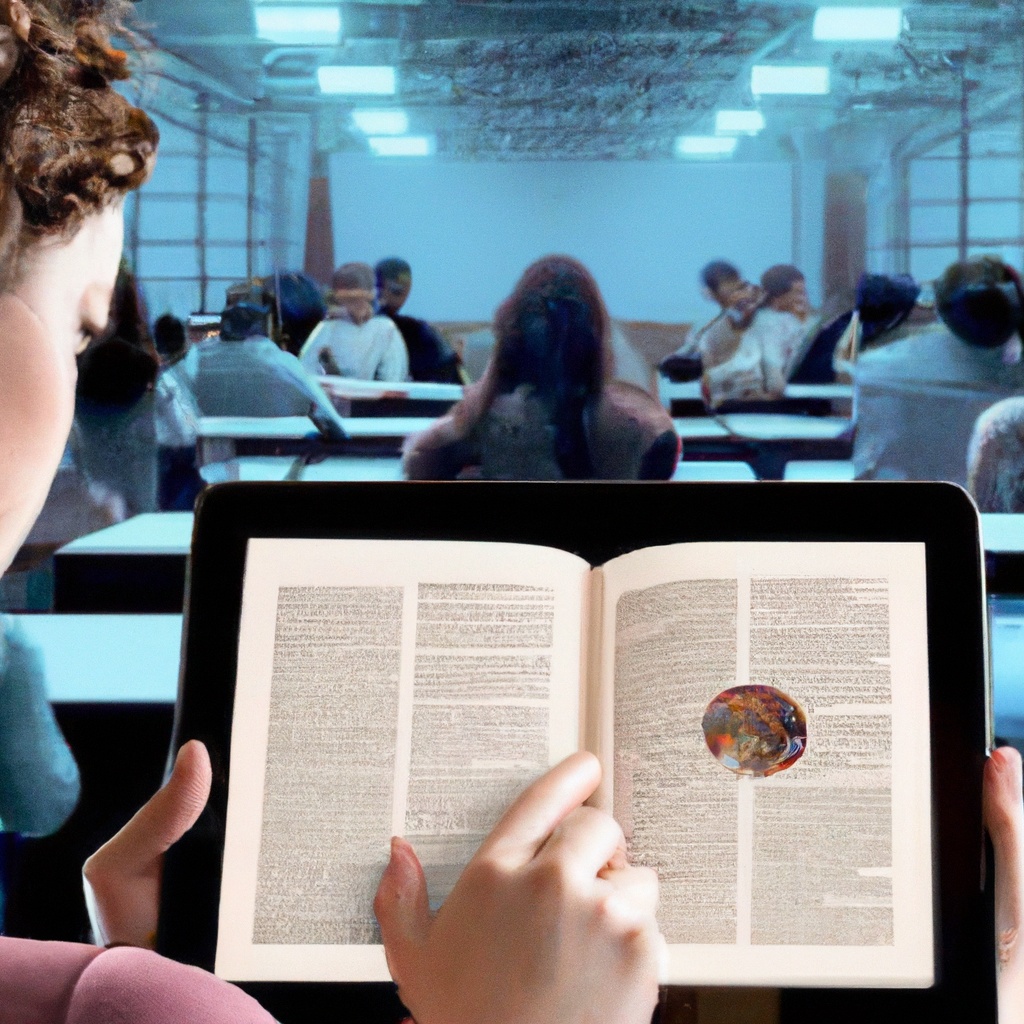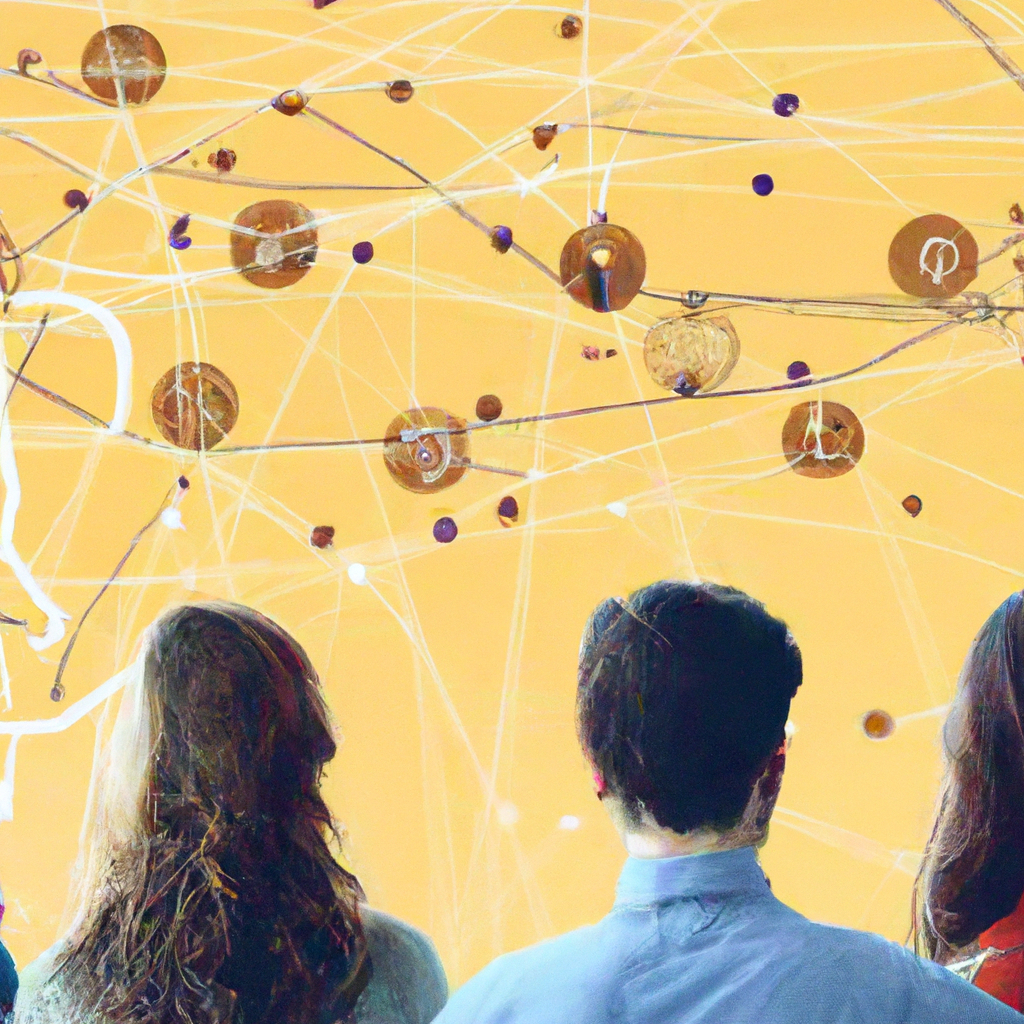Imagine how much more effective education could be if it were tailored to each individual’s unique learning style, pace, and interests. Thanks to the advancements in artificial intelligence (AI), this vision is becoming a reality. AI is revolutionizing the field of education, enabling personalized learning experiences that cater to each student’s strengths and weaknesses. From intelligent tutoring systems that adapt to student performance to virtual reality simulations that bring subjects to life, AI is transforming the way we learn and revolutionizing the future of education. In this article, we will explore the various ways AI is used to personalize education and enhance the learning experience for students around the world.

Understanding the Role of AI in Education
In recent years, Artificial Intelligence (AI) has emerged as a powerful tool with the potential to transform the field of education. From personalizing tutoring and learning pathways to improving student engagement and performance, AI has demonstrated its ability to revolutionize the way we teach and learn. This comprehensive article aims to provide an in-depth understanding of the role of AI in education, exploring its various applications and their impact on both students and educators.
Basics of AI in Education
Before delving into the specifics, it is essential to grasp the basics of AI in the context of education. AI refers to the simulation of human intelligence in machines capable of performing tasks that typically require human intelligence, such as speech recognition, problem-solving, and decision-making. In education, AI utilizes algorithms and data analysis to enhance the learning experience, providing personalized support and guidance to students.

AI’s Potential in Transforming Education
The potential of AI to transform education is immense. By leveraging AI technologies, educators can create personalized tutorials that cater to the unique learning needs of individual students. Additionally, AI assists in designing personalized learning pathways, guiding students through their educational journey based on their strengths, weaknesses, and learning preferences. Such personalized learning experiences foster greater engagement, motivation, and efficiency in students, helping them achieve better outcomes.

AI in Personalizing Tutoring and Learning Pathways
One of the most significant applications of AI in education is its ability to personalize tutoring and learning pathways. Through AI-powered algorithms, educators can create customized tutorials that adapt to each student’s knowledge level and learning pace. By utilizing techniques such as natural language processing and machine learning, AI tutors can interact with students, answer their questions, and provide tailored explanations, making the learning process more efficient and engaging.
Moreover, AI plays a crucial role in designing personalized learning pathways. By analyzing student data, such as past performance, interests, and learning style, AI algorithms can recommend suitable learning resources, activities, and assessments. This individualized approach to learning ensures that students receive targeted support, enabling them to progress at their own pace and develop a deeper understanding of the subject matter.
To illustrate the impact of AI in personalizing learning, let us consider a case study. In a high school mathematics class, an AI tutor is deployed to enhance the learning experience. The tutor collects data on each student’s performance and identifies areas of struggle. Based on this information, the AI tutor generates personalized tutorials for each student, providing step-by-step guidance and additional practice opportunities. As a result, students who were previously struggling with certain concepts show improvement, bridging the learning gaps and gaining confidence in their mathematical abilities.

Using AI for Adaptive Learning
Adaptive learning, as the name suggests, refers to an educational approach that adapts to the learner’s needs, tailoring the content, resources, and strategies accordingly. AI plays a significant role in enabling adaptive learning by analyzing vast amounts of data and dynamically adjusting the learning experience. This leads to a more personalized and effective learning journey for each student.
The concept of adaptive learning involves continuously assessing the student’s performance and adapting the teaching methods accordingly. By leveraging AI algorithms, educators can identify areas of strength and weakness, allowing them to tailor the content and delivery to address the specific needs of each student. As a result, students receive targeted support, focusing on the areas where they require the most assistance and accelerating their learning progress.
The benefits of AI-driven adaptive learning are numerous. Firstly, it allows students to learn at their own pace, minimizing the chances of falling behind or getting bored by overly repetitive content. With adaptive learning, students can progress through the curriculum efficiently, ensuring they develop a solid foundation before moving on to more advanced topics. Additionally, adaptive learning promotes a deeper understanding of the subject matter, as students receive personalized explanations and remediation when needed.
However, it is essential to acknowledge that there are challenges associated with AI-driven adaptive learning. One potential challenge relates to the quality and accuracy of the data being used to inform the adaptive algorithms. If the data is incomplete, biased, or misleading, the personalized recommendations may not be accurate, leading to suboptimal learning experiences. Another challenge lies in striking the right balance between personalization and standardization in education. While personalization is crucial, educators must ensure that essential foundational knowledge and skills are still adequately covered.

Impact of AI on Student Performance and Engagement
The integration of AI in education has shown promising results in improving student performance and engagement. By leveraging AI tools and techniques, educators can enhance the learning experience in several ways.
Firstly, AI enables personalized instruction, adapting to individual students’ needs and providing targeted support. This individualized approach helps students overcome learning barriers and encourages them to take ownership of their learning. As a result, students experience improved academic performance, as their learning journey is tailored to their specific requirements.
Secondly, AI enhances engagement by making the learning process more interactive and immersive. With the assistance of AI-driven technologies like virtual reality and augmented reality, students can explore complex concepts in a hands-on and visually stimulating manner. This fosters a deeper understanding and retention of the material, as students become active participants in their learning.
Furthermore, AI facilitates personalized feedback, offering students immediate insights into their performance. Through AI algorithms, assessments and examinations can be tailored to each student, providing feedback that is precise, constructive, and customized. This timely feedback helps students track their progress and identify areas for improvement, leading to increased motivation and a sense of achievement.
An additional aspect to consider is the impact of AI on student-teacher interaction. While AI can provide valuable support and guidance, it should not replace the role of teachers entirely. Instead, AI serves as a complementary tool, enabling teachers to focus on individualized instruction, facilitating meaningful discussions, and building strong relationships with their students. Thus, AI in education enhances the student-teacher dynamic, fostering a more collaborative and holistic learning environment.
Stay tuned for the next part of this article, where we will explore the role of AI in assessments and feedback, its application in meeting the needs of special education students, and the privacy and ethical concerns surrounding AI in education. We will also discuss the future prospects of AI in personalizing education, its impact on educators and teaching methods, and the intersection of AI and educational technology (EdTech).










